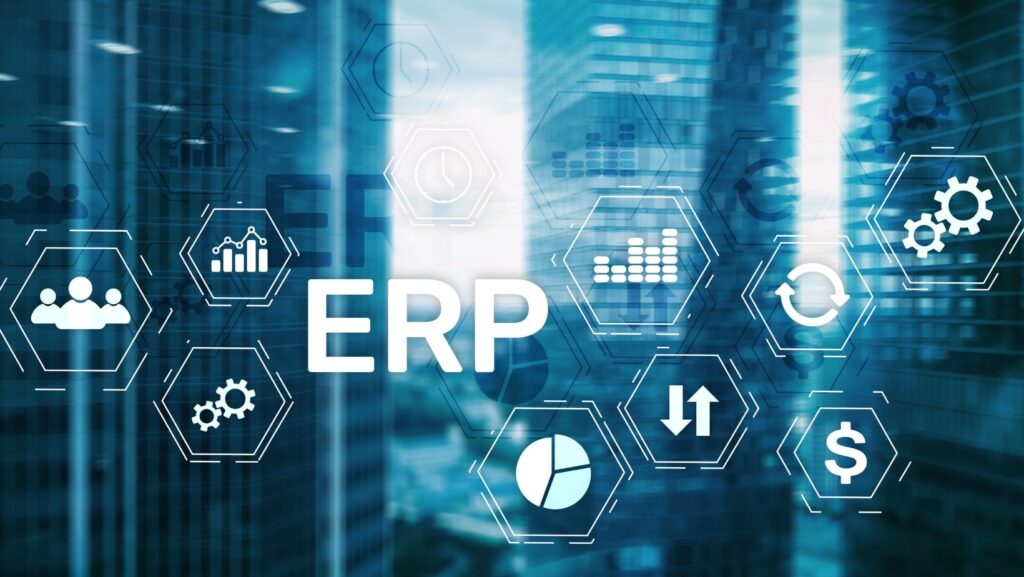Staying competitive requires more than basic management tools. According to a study by Panorama Consulting, 95% of businesses reported improvements in their processes after implementing an ERP (Enterprise Resource Planning) system. ERP systems have become indispensable in transforming and streamlining operations across industries, making them a cornerstone of modern business strategy.
What is an ERP System?
An ERP system is software designed to integrate various business processes into a unified system. It is the backbone of an organisation’s operations, managing everything from finance to human resources, supply chain, and customer relationships. ERP systems evolved from basic accounting software in the 1990s to comprehensive platforms that now support almost every aspect of a business.
Key ERP Modules and Their Impact on Business Operations
-
Finance and Accounting
The finance and accounting module of an ERP system is essential for managing financial transactions and maintaining compliance. It covers areas like accounts payable, accounts receivable, general ledger, and budgeting. By automating these processes, ERP systems improve financial accuracy, enhance compliance with regulations, and provide real-time financial reporting, enabling better decision-making.
-
Supply Chain Management (SCM)
The supply chain management module helps businesses manage procurement, inventory, order processing, and logistics. ERP systems streamline supply chain operations by providing real-time visibility into inventory levels, improving order accuracy, and reducing operational costs.

As a spokesperson from Priority Software, a leader in ERP, notes, “By integrating supply chain management into an ERP system, companies can significantly reduce lead times and optimize inventory levels, leading to better customer satisfaction and cost savings.”
-
Human Resources (HR)
The HR module in an ERP system handles everything from payroll to employee records, performance management, and recruitment. This module helps organizations manage their workforce efficiently by automating routine tasks, ensuring compliance with labor laws, and improving employee satisfaction through better resource management. With centralized data, HR departments can make more informed hiring, training, and development decisions.
-
Customer Relationship Management (CRM)
The CRM module is crucial for managing customer interactions, sales, marketing, and customer service. By integrating CRM with other ERP modules, businesses can gain a 360-degree view of their customers, leading to more personalized marketing, improved customer service, and increased sales. This module enhances customer satisfaction and loyalty by ensuring customer needs are met promptly and efficiently.
A leading sales automation CRM can further enhance ERP capabilities by automating key sales processes, optimizing lead management, and providing deeper customer insights.
The Power of Integration: How ERP Modules Work Together
One of the most significant advantages of an ERP system is its ability to integrate various modules, allowing for seamless data flow across departments. This integration eliminates data silos, improves communication, and provides real-time insights that are critical for informed decision-making. Automation of routine tasks across different modules increases efficiency, reduces errors, and saves costs, making ERP systems a powerful tool for any business.
Tangible Benefits of Implementing an ERP System
The implementation of an ERP system brings numerous tangible benefits. It improves decision-making by providing comprehensive insights and analytics, reduces operational costs through optimized resource management, and offers scalability and flexibility to grow with the business.

Moreover, ERP systems enhance customer satisfaction by ensuring timely delivery, better service, and personalized experiences.
Case Studies: Real-World Examples of ERP Success
For example, a manufacturing company that implemented an ERP system saw a 30% reduction in production lead times and a significant improvement in inventory management. In another case, a retail business used an ERP system to integrate its online and offline operations, resulting in a 20% increase in sales and improved customer satisfaction.
ERP systems have revolutionized how businesses operate, offering a level of integration and efficiency that was unimaginable just a few decades ago. From finance and supply chain management to HR and CRM, these systems streamline processes, reduce costs, and enhance decision-making. As businesses continue to evolve, the role of ERP systems in driving innovation and maintaining competitiveness will only grow.
